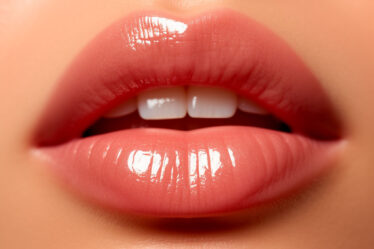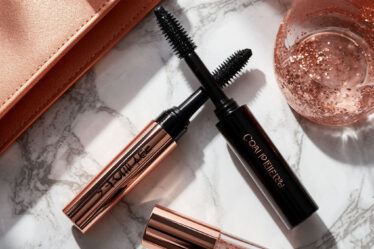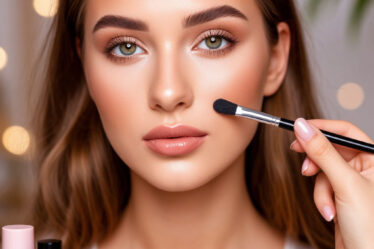
Who among us at least once did not fall asleep with makeup, promising himself “tomorrow I will catch up”? But if you do this regularly, the skin will definitely not say “thank you”. Sleeping with makeup on is harmful, and this is not just a horror story from cosmetologists.
At night, the skin is renewed, and foundation, mascara, and lipstick turn into a mask of dust, sebum and bacteria. As a result, we get a dull complexion, clogged pores and unexpected inflammation. But don’t worry — fixing the situation is easier than it sounds. Let’s find out what exactly happens to the skin and how to make evening care an easy habit.
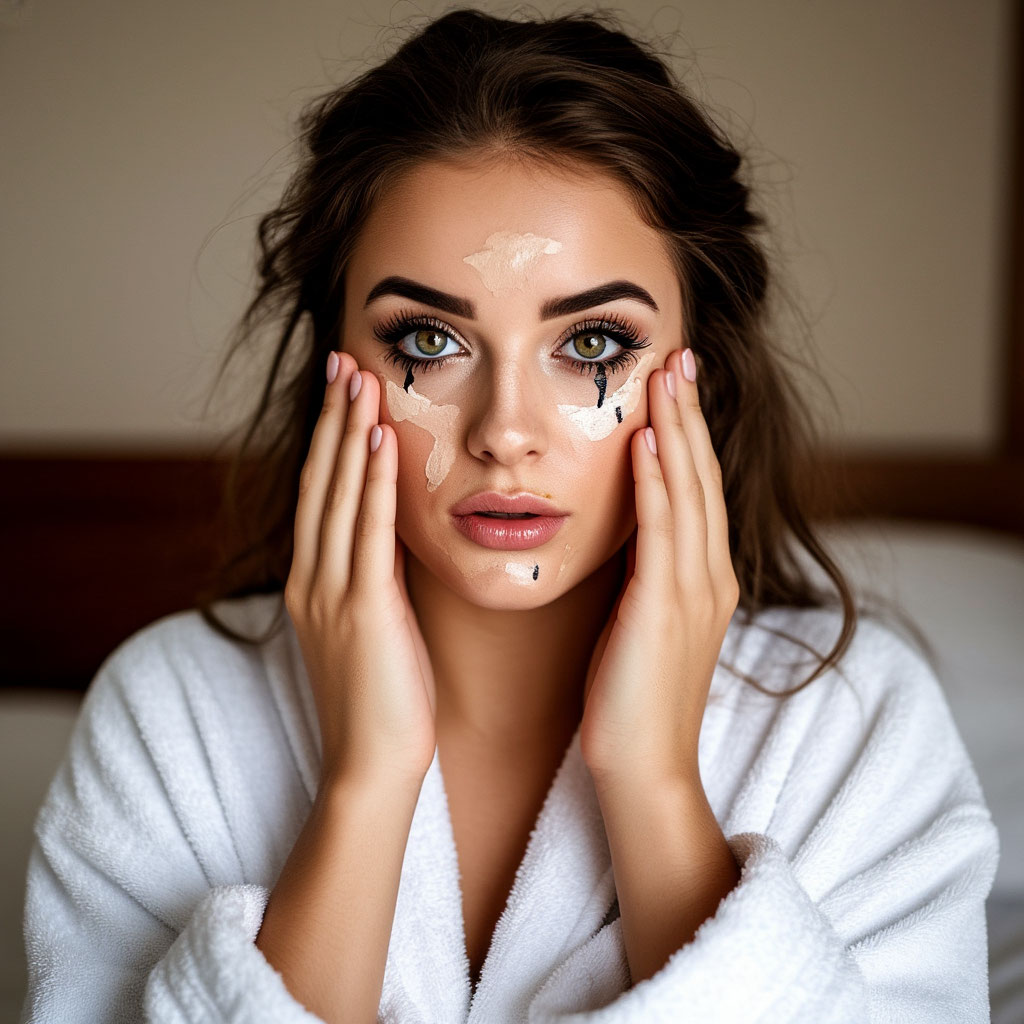
How makeup affects your skin at night
The skin works more actively at night than during the day: it is restored, renewed, and fights damage. But if you go to bed with makeup on, these processes are slowed down or completely blocked. Foundation, blush and powder create a dense barrier, preventing cells from breathing. The harm of sleeping with cosmetics is not an exaggeration — this is a direct path to a dull complexion, inflammation and early wrinkles.
Night processes under threat
While a person sleeps, the epidermis intensively produces collagen, removes toxins and restores the hydrolipidic balance. Makeup for the night turns into a mask of silicones, dyes and oxides, which does not allow the skin to function normally. Instead of renewing herself, she spends her energy fighting clogged pores and irritation.

Oxygen starvation and toxins
Cosmetics are mixed with sebum, dust and form a sticky film. This mixture not only interferes with oxygen access, but also becomes a breeding ground for bacteria. What is the danger of makeup at night? The fact that in a few hours it has time to oxidize, causing inflammation and allergic reactions. In the morning, instead of a fresh face, you can see swelling, redness and new rashes.
Reducing the effectiveness of care
Many people apply night creams and serums over their makeup, hoping for a miracle. But the active ingredients simply do not penetrate deep into the skin, remaining on the surface along with cosmetics. It turns out that going to bed turns into a useless ritual.
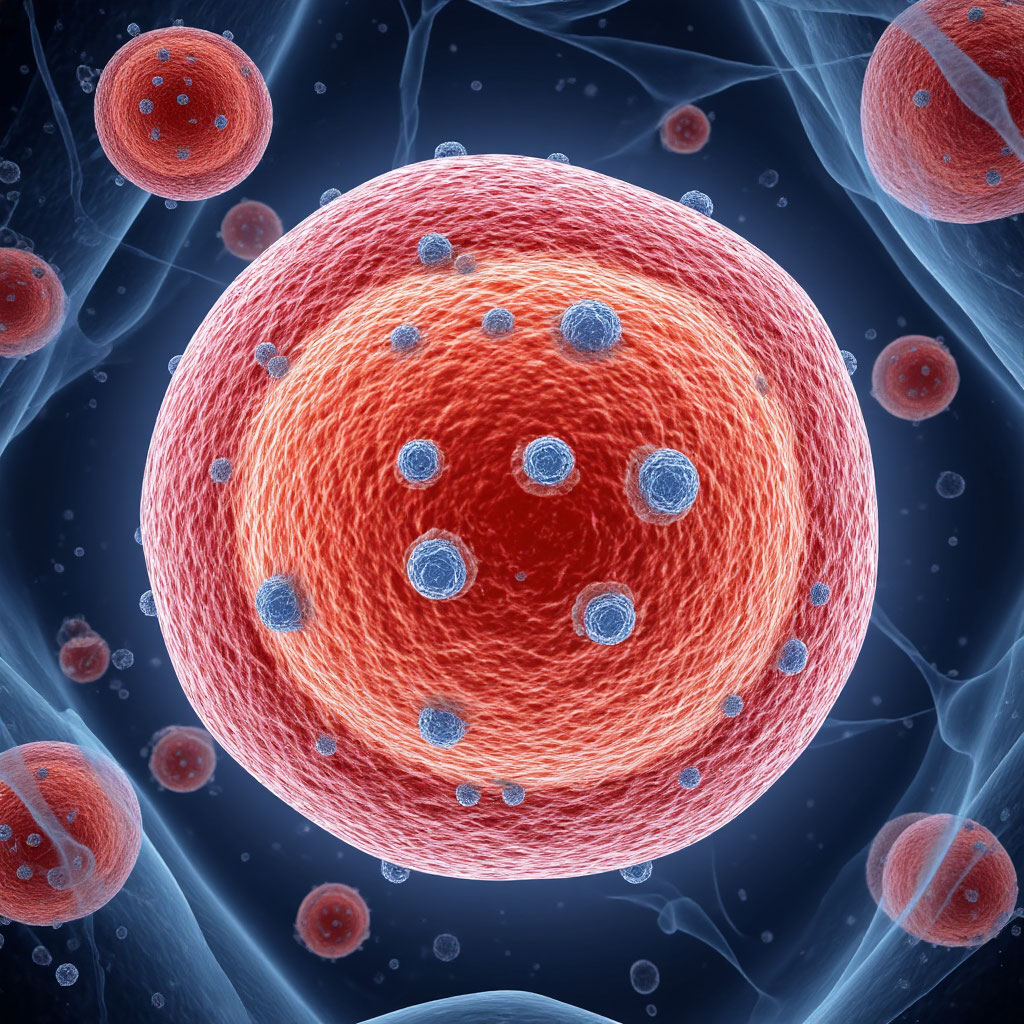
What happens to your eyelashes and the skin around your eyes
Mascara and eyeliner are the main enemies of the delicate eye area. Dried particles scratch the skin, causing microtraumas and early wrinkles. Lashes become brittle and capillaries become more visible due to constant tension. If sleeping with makeup on is bad for the whole face, then for the area around the eyes – doubly so.
Night skin care should start with a thorough cleansing. If you don’t have the energy for a multi-step routine, just remove your makeup with a mild product and apply a light moisturizer. It will take two minutes, but your skin will definitely look better in the morning.
Risks of sleeping with cosmetics
Sleeping with makeup on is not only bad for your appearance, but also for your skin health. Overnight, subtle consequences can turn into serious problems that you’ll have to contend with for weeks. What is the danger of makeup at night? It doesn’t just stay on the surface, it changes the structure of the skin, disrupting its natural processes.

Inflammation and bacterial infections
Cosmetics left on the face are mixed with sebum and dust particles, creating an ideal environment for bacteria to grow. The harm of sleeping with cosmetics is manifested in the form of redness, acne and small pustules. Especially affected are owners of oily and combination skin — their clogged pores can become inflamed by morning.
Premature aging and loss of elasticity
At night, the skin should actively produce collagen and elastin, but makeup interferes with this process. Foundation products and powder, oxidizing, provoke the appearance of free radicals that destroy cells. As a result, the epidermis loses moisture, becomes less elastic, and the first wrinkles appear prematurely.

Irritation and allergic reactions
Persistent formulas of decorative cosmetics contain aggressive components that cause long-term contact with the skin:
- itching,
- exfoliation,
- redness.
Especially affected is the area around the eyes — mascara and eyeliner can lead to swelling and inflammation of the mucous membrane.
Violation of the sebaceous glands
When the pores are clogged, sebum cannot escape, accumulating inside. Over time, this results in:
- to expanded pores;
- black dots;
- uneven skin texture.
Pre-bedtime care helps prevent these problems, but if you neglect cleansing, the effects will become noticeable very quickly.
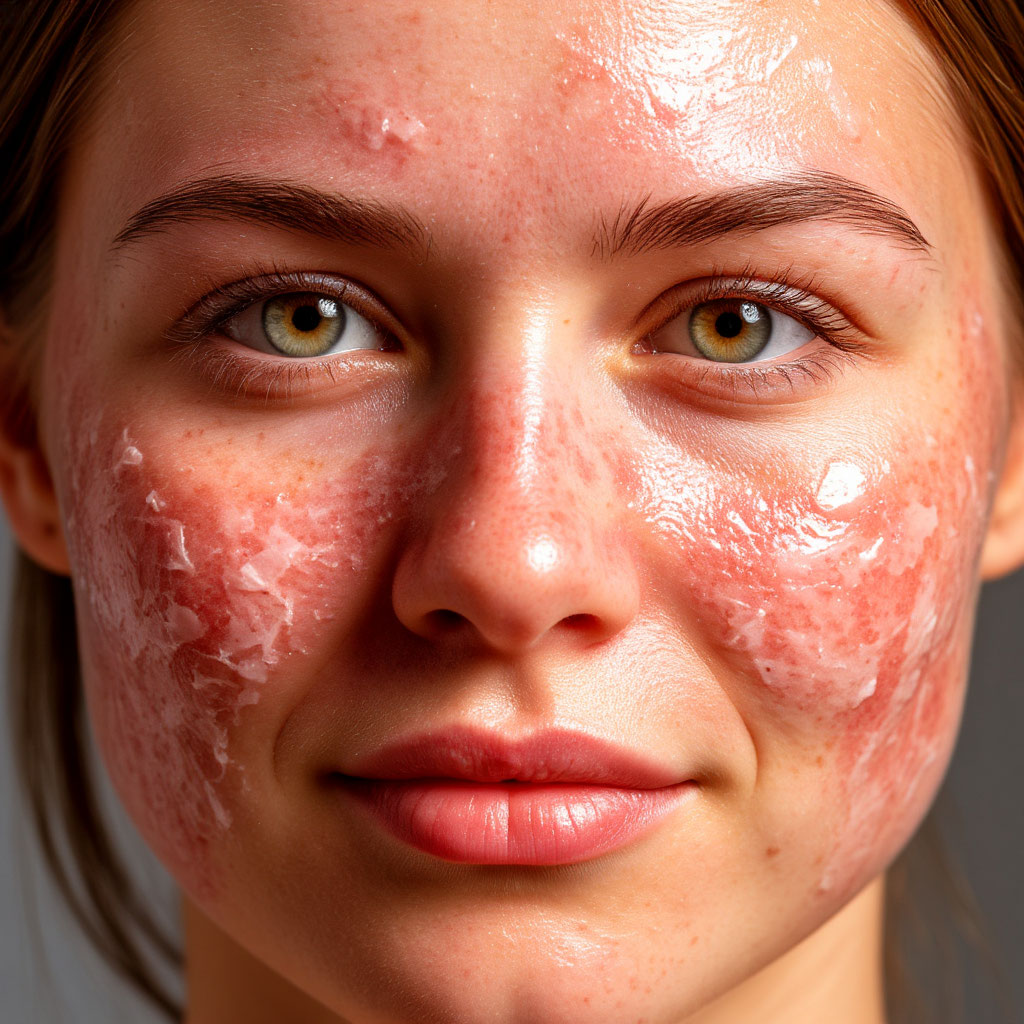
Night skin care should include not only removing makeup but also restoring balance. After washing, you should use a soothing tonic and a light cream that will help the skin recover. If you can’t perform a full-fledged ritual, you can use micellar water — it’s better than nothing.
The devastating effect of nighttime makeup on the pores
Sleeping with makeup on is harmful because of the disastrous effects on your pores. These microscopic channels that provide skin respiration and detoxification are most affected. What is the danger of makeup at night for the pore structure? The consequences are much more serious than the usual temporary pollution.

Physical blockage of the pore ducts
Heavy pigments and silicones in cosmetics create an impenetrable film. The harm of sleeping with cosmetics is manifested in the complete blocking of natural cleansing processes. Especially dangerous are dense tonal bases, which literally “wall up” the mouths of hair follicles.
Chemical transformations in the pores
During the night, the components of cosmetics react with the skin secret. Bedtime care prevents these processes, but in the absence of it, new aggressive compounds are formed. Oxidized oils and decomposed dyes penetrate deep into the pores.
Stages of pore damage:
- Temporary blockage (first cases).
- Fibrotic changes (require the intervention of a cosmetologist).
- Cystic formations (medical attention is required).
Night skin care helps to stop the development at the initial stage.
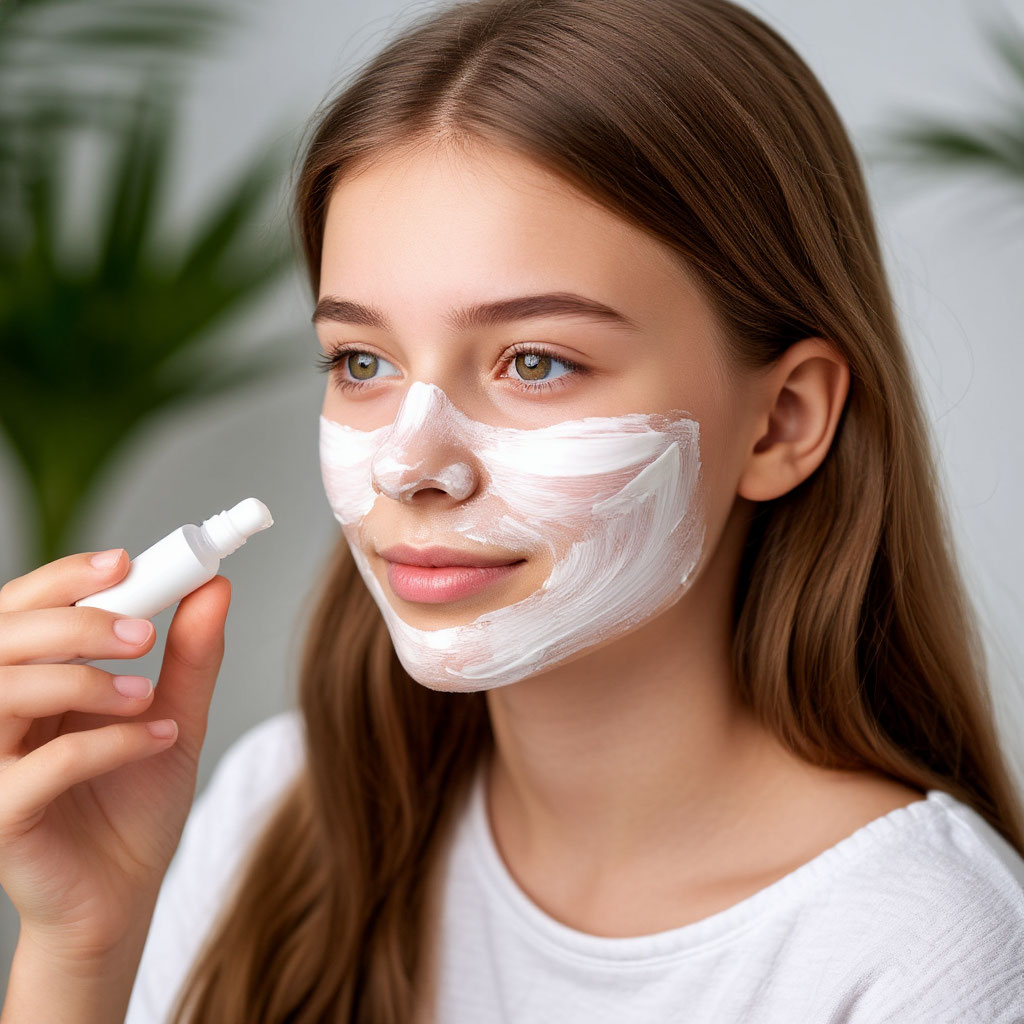
Oxygen starvation of cells
During the night hours, the skin’s oxygen demand increases by 40%. Sleeping with makeup on is harmful, as the cosmetic layer reduces oxygen access by half. This leads to a violation of collagen synthesis and slows down regeneration.
Professional recovery methods may be required in the future:
- Carboxytherapy improves microcirculation
- Ultrasonic cleaning gently opens the pores
- Cryomassage restores tone
- Enzyme exfoliation dissolves dirt
The right evening ritual for radiant skin
Sleeping with makeup on is bad – it’s an axiom, but what to do when you only have the strength to get to bed? Creating a competent bedtime care does not require titanic efforts, but it gives the skin the opportunity to fully recover overnight. What is the danger of makeup at night, if you do not remove it correctly? Even the most gentle cleansing will be useless without subsequent care steps.
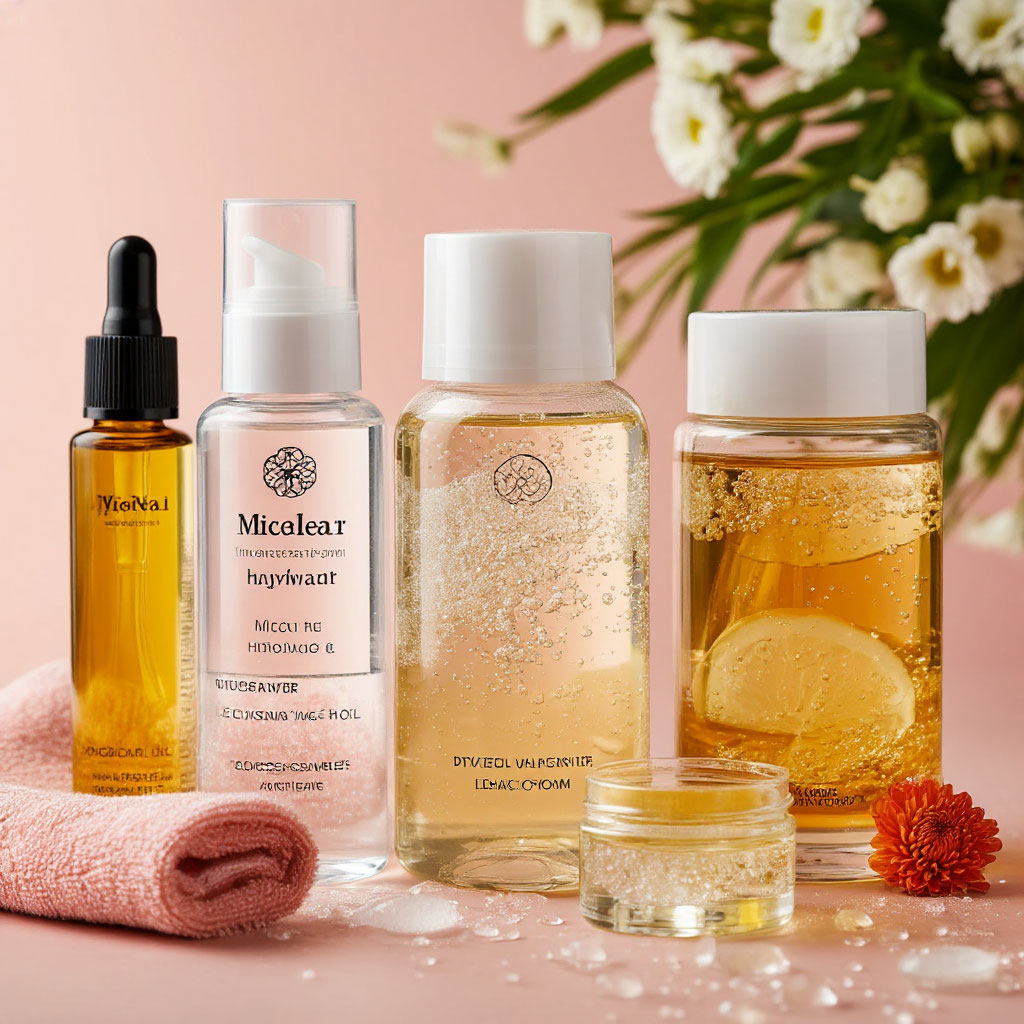
Two-phase purification is the gold standard
The first step in nighttime skin care is to choose a micellar product or hydrophilic oil. These products dissolve cosmetics without disturbing the hydrolipidic balance. The second stage is a gel or foam with a neutral pH, which removes the remaining dirt. This approach completely eliminates the harm of sleeping with cosmetics, preparing the face for the next stages.
Toning – an underrated stage
Many people skip this step, depriving the skin of the most important link of recovery. A good tonic isn’t just refreshing:
- normalizes the pH value;
- narrows the pores after cleansing;
- increases the penetration of subsequent funds.
Without proper toning, night skin care loses 30% of its effectiveness.
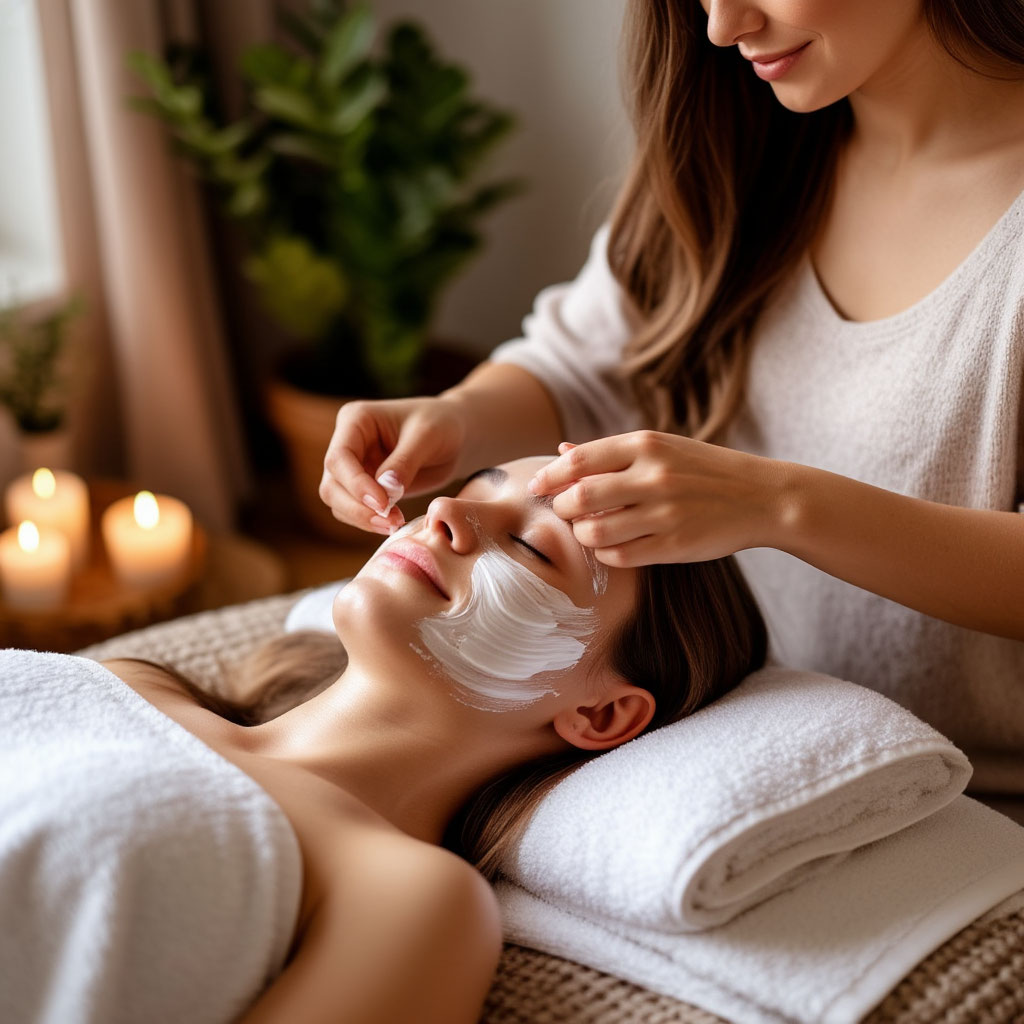
Intensive recovery at night
While the body is resting, the active ingredients work. Serums with hyaluronic acid, peptides, and retinol should be applied to slightly moist skin. For owners of the dry type, nourishing creams with ceramides are ideal, for oily ones – light textures with zinc. Bedtime care should be tailored to the needs of the specific type of epidermis.
Pay special attention to the area around the eyes
Delicate skin of the eyelids requires special tools:
- caffeinated creams fight puffiness;
- formulas with peptides smooth out wrinkles;
- light gels with vitamin C lighten dark circles.
The harm of sleeping with cosmetics is especially noticeable in this area, so cleansing should be as gentle as possible.
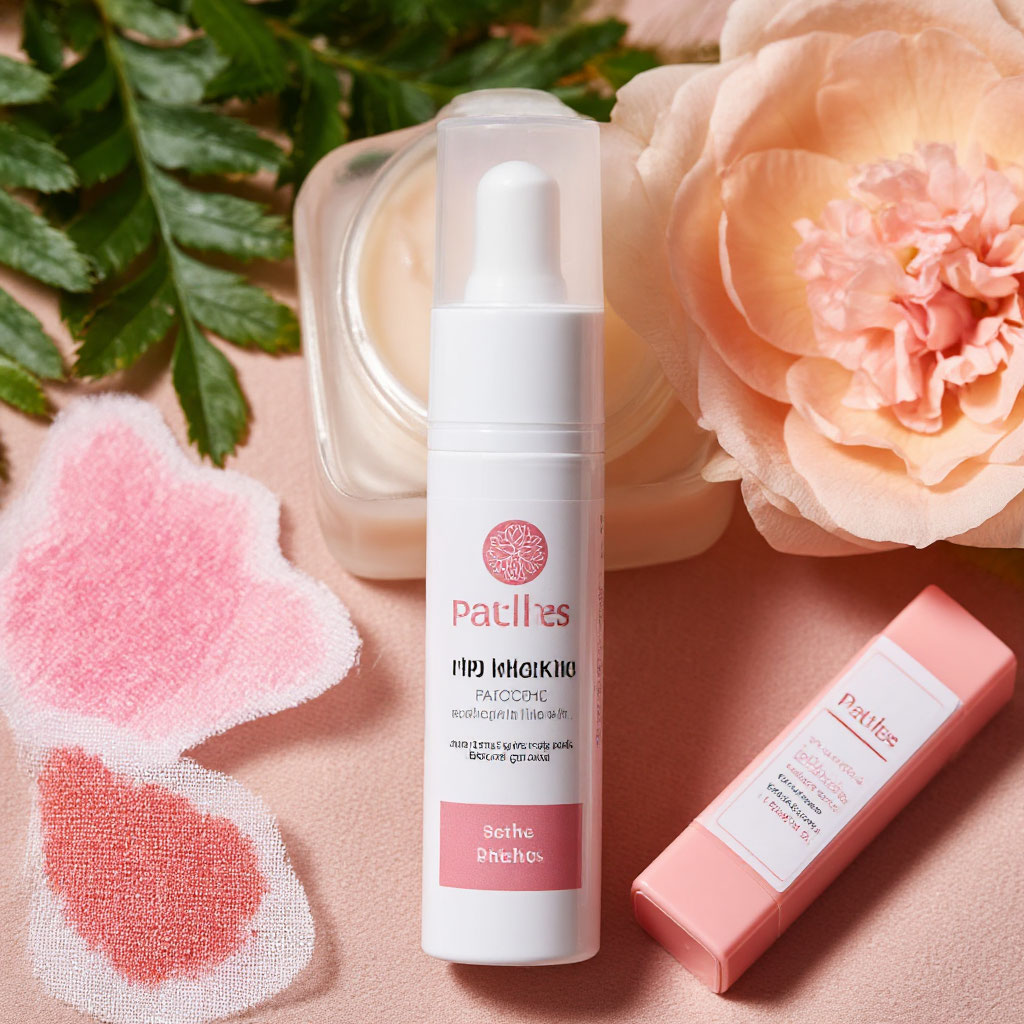
Lips also need care
A gentle scrub once every three days and a nourishing overnight balm will help prevent flaking. What is the danger of makeup at night for lips? Loss of volume, the appearance of jams and painful cracks.
The final chord can be a facial massage with a dry brush or a roller made of natural stone. Two minutes of light movements stimulate lymph flow, increase microcirculation and help the products to be better absorbed. Such a ritual turns the obligatory bedtime care into a pleasant ceremony.
How to get used to regular skin cleansing
Sleeping with makeup on isn’t healthy-everyone knows that, but how do you turn your evening routine into a habit? Many people skip bedtime care not because of laziness but because they have not developed a system. Just a few psychological techniques will help make night skin care as automatic as brushing your teeth.
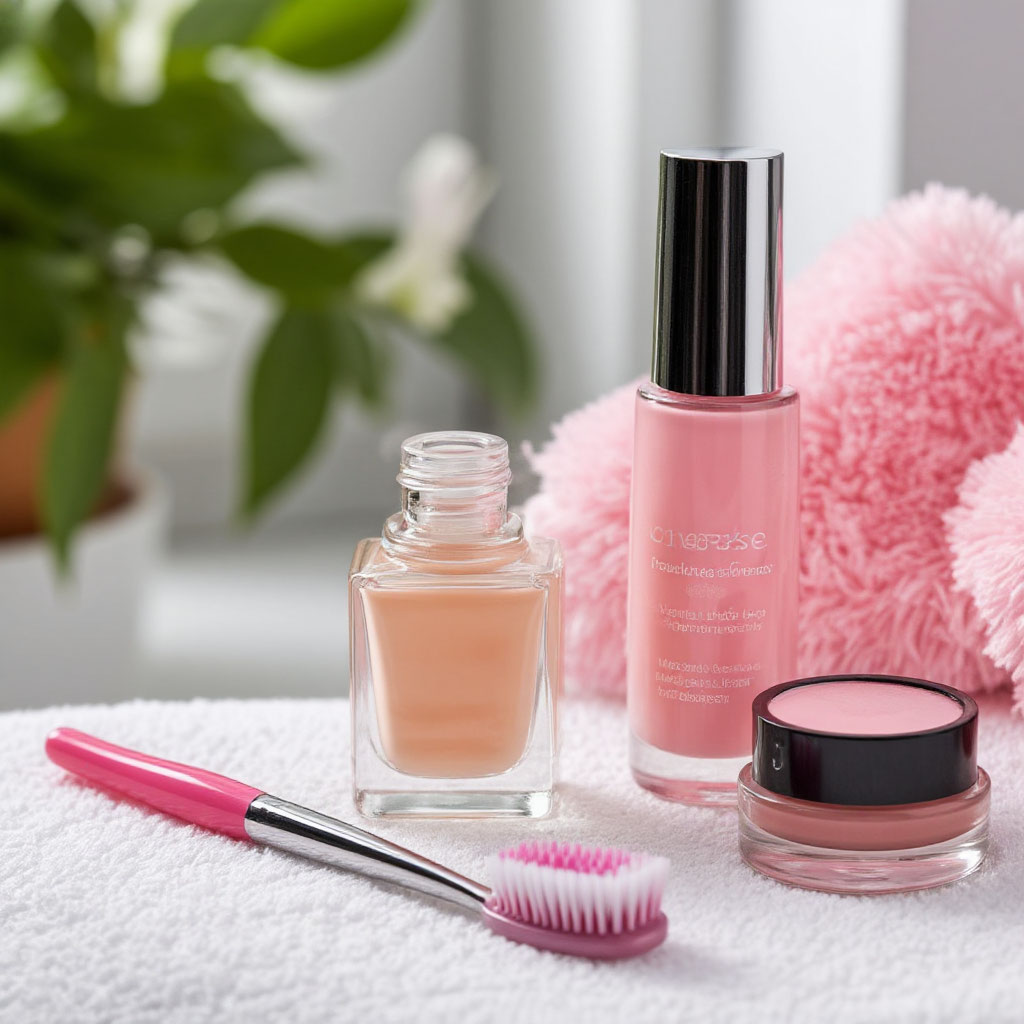
Creating triggers for a habit
The human brain responds better to related actions than to abstract reminders. If you put the cleanser next to the toothbrush, the washing process will be a logical continuation of the evening ritual. The harm of sleeping with cosmetics will no longer be a problem when cleansing becomes part of the usual chain of actions before rest.
The Small Steps method
You can start with minimal changes. In the first weeks, it is quite easy to remove makeup, even without subsequent stages of care. What is the danger of makeup for the night, if washed off at least partially? The risks are significantly reduced compared to the complete absence of cleansing. Gradually, a tonic and cream are added to a simple wash.

Visualizing the consequences
Before you go to bed with cosmetics, it is worth imagining the consequences:
- inflammation;
- enlarged pores;
- dull complexion.
Nighttime skincare doesn’t seem burdensome when you clearly see the alternative. Photos of skin under a microscope after sleeping with makeup on are a powerful motivation for skeptics.
Reward system
Psychologists recommend strengthening the habit with small rewards. A beautiful bottle for product, a fragrant cleansing oil or soothing music during the ritual turn the care before going to bed into a pleasure. After a month of this practice, the body itself will begin to require evening cleansing.
Technology assistants
Create additional motivation:
- smart alarm clocks with reminders;
- habit trackers;
- special applications.
You can set a reminder for the time when makeup is usually removed. The harm of sleeping with cosmetics becomes less likely when the phone gently prompts you about the need for care.

Suitable media formats
For owners of oily skin, light foams are suitable, while dry ones have creamy textures. What is the danger of makeup at night, if the removal tool causes discomfort? Unpleasant sensations deter regular use. Properly selected texture makes the process enjoyable.
Alternative: micellar water and wipes
Sleeping with makeup on is harmful, but there are situations when proper bedtime care is impossible. Traveling, nighttime processing, or a banal lack of energy is not a reason to completely abandon purification. Modern cosmetology offers alternative options that minimize the harm of sleeping with cosmetics.
Micellar water as an emergency rescue
The formula based on soft surfactants and micelles gently dissolves dirt without the need for rinsing. What is the danger of makeup at night, if this tool was used? The risks are reduced by three times compared to the complete absence of cleansing. It is important to choose alcohol-free and fragrance-free options that are suitable for daily use.
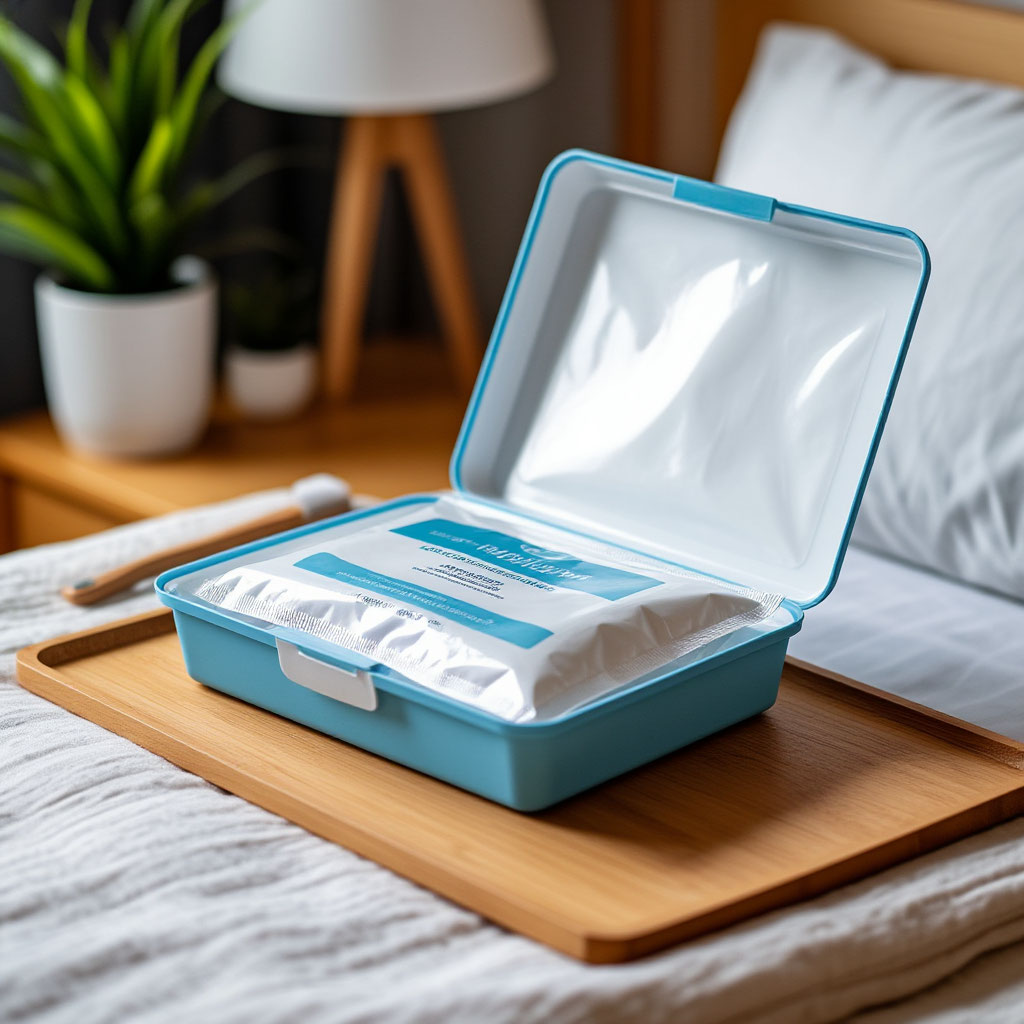
Cleansing wipes for instant care
Textile discs impregnated with a special composition remove up to 90% of cosmetics. Night skin care begins with a gentle rub along the massage lines. Modern versions contain moisturizing ingredients that prevent tightness after use.
2-in-1 multifunctional vehicles
New generations of products combine the properties of cleansing water and tonic. In one movement, remove makeup and prepare the epidermis for recovery. The harm of sleeping with cosmetics is significantly reduced when using such comprehensive solutions.
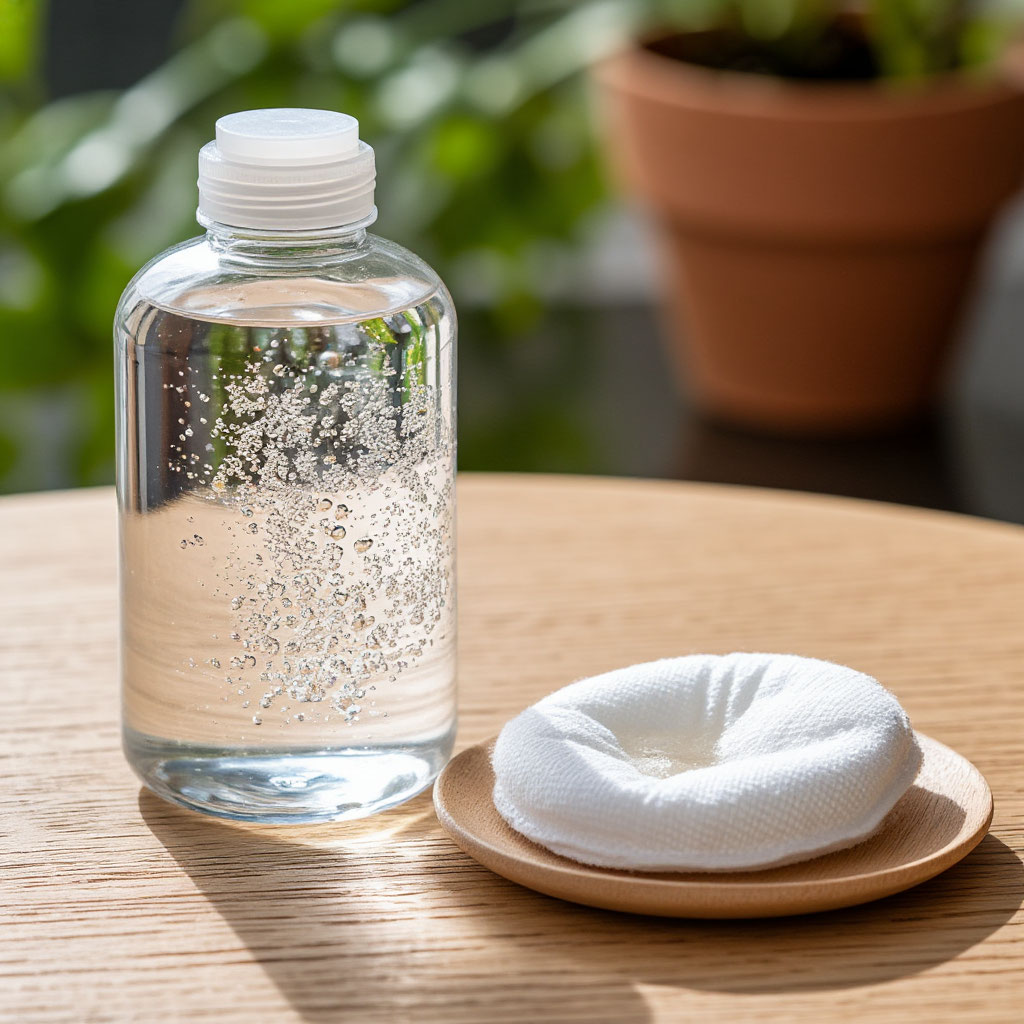
Dry shampoos for the skin
Powdery formulations with absorbent particles absorb excess sebum. Light patting movements are distributed over the face, leaving the skin fresh. What is the danger of makeup at night, if you use such tools? They do not remove makeup completely, but neutralize the main negative effects.
Express masks for emergency care
Five-minute fabric applications with active ingredients compensate for the lack of a full-fledged ritual. Bedtime care in a shortened version may include such rapid methods. Aloe vera and hyaluronic acid instantly refresh tired skin.
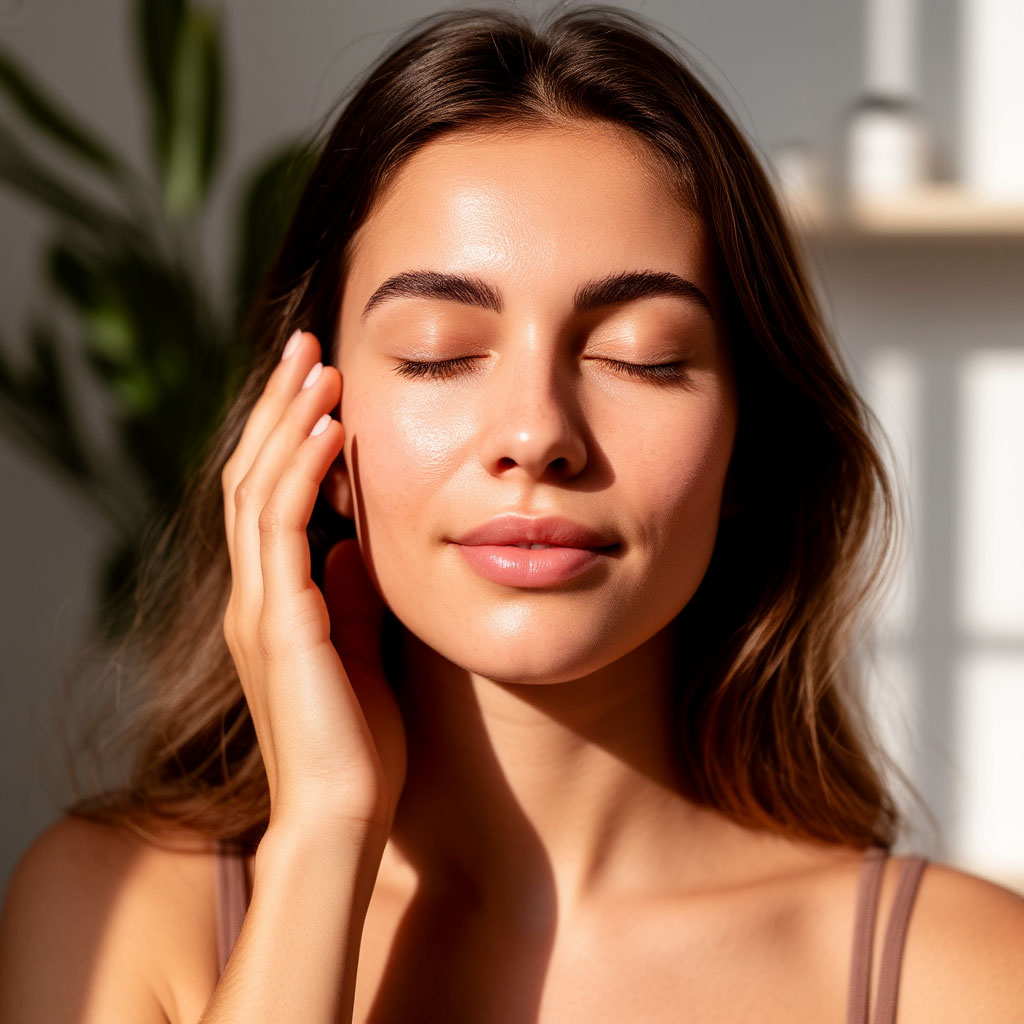
After being forced to skip the evening cleansing, a special morning ritual is required. A gentle foam with a pH of 5.5, a tonic with panthenol and an intensive serum will help the skin recover. Night skin care the next day should be especially thorough.
Sleeping with makeup on is harmful – this is a fact confirmed by dermatologists and cosmetologists. But the main thing is not just to know about the consequences, but to develop a stable habit of evening care. In the busiest conditions, you can find an alternative-micellar water, cleaning wipes or express products.
Skin that breathes at night looks fresh, radiant and healthy. Just a few minutes a day is enough to avoid inflammation, premature aging, and a dull tone. Let proper grooming become as natural a ritual as brushing your teeth – and your reflection in the mirror will say “thank you”.

